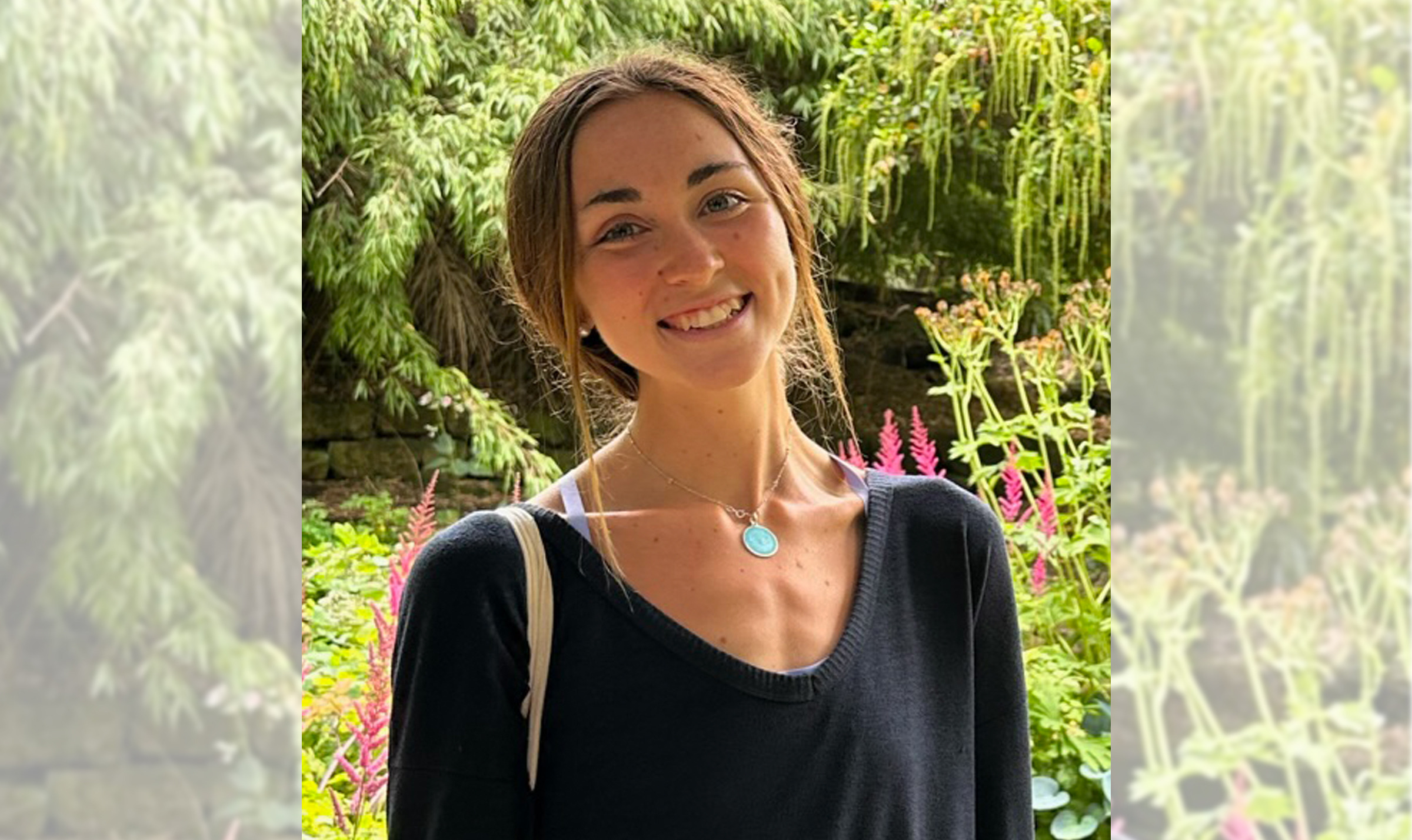Driven by a passion for community service and youth engagement, Cate Schultz aspires to provide learning opportunities to underrepresented populations and ensure children have access to enriching learning experiences through the practice of play.
Schultz, who grew up in Bethesda, MD, is a double major in the UNC School of Education’s Human Development and Family Science (HDFS B.AEd) program and psychology (B.A) with a minor in conflict management. With a profound interest in helping children and exploring the intersection of children’s play and their well-being, Schultz is committed to enhancing their overall development.
This summer, Schultz, who is entering her senior year, was selected as a 2023 Burch Fellow, a fellowship program offered through Honors Carolina, designed to explore distinctive and individually tailored educational opportunities internationally. During her summer abroad experience, Schultz collaborated with researchers and educators at the Play, Education, Development, and Learning (PEDAL) lab at the University of Cambridge in England to gain insight into varying play techniques used at European children’s hospitals and child development organizations, and to learn to create supportive environments that promote the physical, emotional, and cognitive development of young patients.
During Schultz’s experience at the University of Cambridge, she worked to support early mental health interventions, assisted with literature reviews, reviewed interview transcripts, created flyers, and developed study materials. She also inputted data for more than 30 parent-child pairs and created mind maps to organize key research findings.
“I wanted to pursue a unique experience during the summer that involved traveling and exploring new places,” Schultz said. “My focus was to align this experience with my career path and delve deeper into that space.”

As part of the program, Schultz also traveled to Copenhagen, where she visited Science Club Kids Denmark (Videnskabsklubben) an after-school program dedicated to making science engaging for children and young adults through scientific topics and activities surrounding math, physics, microbiology, and more.
Schultz also connected with industry professionals and positive psychologists to learn about strengths-based approaches of positive psychology and how it complements research on the history of play, skill development, and child well-being.
“On top of these valuable connections, I gained hands-on experience contributing to diverse projects at the lab and in Denmark,” Schultz said. “The combination of networking with top thinkers and developing practical research skills made this an enriching experiential learning opportunity.”
While her interest in psychology shaped her academic pursuits, Schultz also found herself drawn to the School’s HDFS program as a result of its focus on understanding the dynamics of human development within familial and social contexts. To Schultz, the program resonated with her passion for understanding individuals’ growth and well-being, aligning with her desire to contribute positively to the lives of adolescents.
“HDFS teaches you real-world concepts — things like values, collaboration, and experiential education,” Schultz said. “You learn more by going out into schools and communities.”
Schultz’s summer internship also provided her with the space to apply knowledge gained from her HDFS and psychology coursework at Carolina. She credits the hands-on research experience received in labs at the UNC School of Education with equipping her for projects and responsibilities during her internship.
“The fact that HDFS has the ability for you to both have a broad experience in human services and educational coursework while still helping you find out what you’re passionate about is really helpful,” Schultz said. “I felt prepared going into my internship because of my experience at UNC.”
Schultz supports research under the guidance of Kathryn Leech, Ph.D., an assistant professor who leads the School’s Early Learning Lab. She collaborates with peers to run experimental sessions with child-parent pairs, synthesize literature, and prepare materials.
Through these experiences, Schultz contributes directly to research on emergent literacy and science engagement in early childhood. Some of her work includes transcribing observations for studies examining gender gaps in childhood science communication and early language development.
“The amount of knowledge I’m gaining is truly amazing, and what’s even better is how relevant it is to what I’m currently working on,” Schultz said.
Beyond her summer internship and involvement with the School, Schultz participates in several campus organizations and professional endeavors that resonate with her passion for play therapy and addressing the developmental needs of adolescents.
In 2022, Schultz received a $1,500 grant from the Carolina Center for Public Service to fund an outdoor experiential program for underrepresented students at the Boys & Girls Clubs of Durham and Orange Counties and the Marian Cheek Jackson Center. Through this program, she promotes oral history and environmental advocacy. Schultz also engages children in sustainability projects, science experiments, and team-building activities.
Additionally, Schultz volunteers at Wonder Connection, an organization serving pediatric patients at UNC Children’s Hospital to enrich the lives of children and teens who are hospitalized by engaging them in hands-on science activities.
At Wonder Connection, now serving as her HDFS internship location for this academic year, Schultz employs the use of therapeutic play to teach coping skills to patients in the hospital.
“I was interested in play and how it can support children’s coping skills and mental health,” Schultz said. “I wanted to learn how to create spaces where kids could play and work through trauma.”
Upon graduation, Schultz aims to apply the expertise she gained at Carolina to create evidence-based frameworks that empower children to achieve their utmost potential and nurture their psychological growth. Additionally, she envisions traveling overseas to pursue further international research, specifically delving into the effects of positive psychology practices and philosophies on the development of play-based programs.
